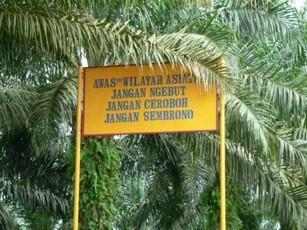- Home
- About
- Campaigns
- Regions
- Themes
- Agrofuels
- Climate justice
- Coastal communities and fisheries
- Disasters
- Economy & debt
- Energy
- Foreign investment
- Forests & forest fires
- Human rights
- Indigenous Peoples
- International Financial Institutions
- Land and food security
- Laws & regulations
- Mining, oil & gas
- Plantations
- Politics & democracy
- REDD
- Regional autonomy
- Transmigration
- Water and dams
- Women
- Publications
- Links
- Contact
Theme
- Plantations (59)
- Agrofuels (58)
- Climate justice (44)
- Land and food security (39)
- Energy (35)
- Human rights (34)
- Forests & forest fires (32)
- Indigenous Peoples (29)
- Laws & regulations (18)
- Foreign investment (13)
- Women (5)
- Economy & debt (4)
- Mining, oil & gas (4)
- Politics & democracy (4)
- International Financial Institutions (3)
- Transmigration (3)
- REDD (1)
- Regional autonomy (1)
Region
- Indonesia (55)
- Sumatra (13)
- Kalimantan (9)
- Sulawesi (1)
- Papua (3)
- Europe/UK (46)
- International (22)
Publication
- Newsletter articles (35)
- Special reports & briefings (2)
- Books (1)
- Photos and videos (5)
- Fact sheets and updates (12)
- Press releases & position papers (4)
- Letters (8)
Agrofuels and oil palm plantations



